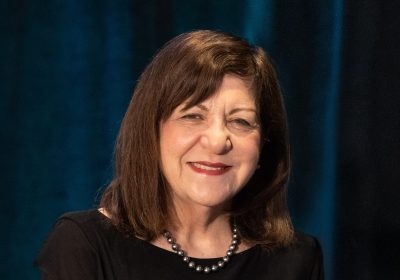The AACR Perseveres and Cancer Research Progresses
When the AACR Annual Meeting 2019 ended in April of that year, no one who attended that wonderful event in Atlanta could have imagined that three years would pass before AACR members and the larger cancer research community would gather again for an in-person Annual Meeting. Our return to a live event finally happened April 8-13, 2022, in New Orleans, and it was a triumph. More than 19,400 people registered for the AACR Annual Meeting 2022, with nearly 80 percent attending in person. The remaining attendees participated in the virtual component of the meeting.
Despite disruptions caused by the COVID-19 pandemic that led to the cancellation of in-person Annual Meetings in 2020 and 2021, the AACR persevered and held its Annual Meetings in a virtual format that set a new standard for scientific conferences and maintained the rapid pace of progress against cancer. The virtual meetings played a valuable role during the pandemic, enabling the global cancer community to continue sharing and discussing cutting-edge research despite obstacles. I am so proud of the resilience of our organization during the past two years and of the impact we were able to make despite the challenges of COVID-19.
This is an incredibly exciting, innovative, and hopeful time in cancer research. The pioneering strides made by researchers across the spectrum of cancer science are driving transformative progress against the disease. The original AACR pioneers, the 11 visionary physicians and laboratory scientists who gathered in Washington, D.C., in 1907 to establish the American Association for Cancer Research, would be astonished by the organization’ s growth and impact. In 1907, the AACR had 33 members. In 2022, our 115th anniversary, I’m happy to report that the organization has surpassed 50,000 members from 129 countries.
Our special anniversary theme is “The AACR: The Driving Force to Eradicate Cancer.” This is entirely fitting. The AACR brings together and integrates all the different stakeholders in the field—basic, translational, and clinical researchers; practicing oncologists; cancer survivors and patient advocates; policymakers; scientific societies; industry; and private foundations—in pursuit of our common mission to prevent and cure all cancers.
The research-driven progress that has been made against cancer is undeniable. The overall age-adjusted cancer death rates in the United States have decreased by 31 percent in the past 25 years, a reduction that translates into 3.2 million cancer deaths avoided. For pediatric cancers, the mortality rate has declined by more than 50 percent from the mid-1970s; today, the five-year survival rate for children with cancer is 85 percent. Despite these and other advances, however, cancer remains a scourge. Stubborn varieties like pancreatic cancer continue to resist treatment. Highly effective precision medicines can lose their effectiveness against cancer over time. Immunotherapy treatments that have shown remarkable long-term results for some cancers aren’t effective for all. Much remains to be achieved, despite the impressive work done so far, and the AACR is at the forefront of this monumental effort. Here are some steps the AACR has taken:
- Cancer is a global problem, and the AACR acts globally. The organization collaborates with scientific organizations worldwide to push the boundaries of cancer science and to develop, support, and train an international cancer workforce.
- The AACR’s scientific publishing portfolio includes 10 highly cited journals that publish critical discoveries at the leading edge of cancer research and contribute to improved patient outcomes and the future of the field.
- The AACR produces seminal reports that serve as critical resources for policymakers and the public, including the AACR Cancer Disparities Progress Report published in June 2022, the second AACR report on the topic; our annual AACR Cancer Progress Report; and the timely and important AACR Report on the Impact of COVID-19 on Cancer Research and Patient Care, released in February of this year.
- The AACR is strongly committed to educating, training, and supporting young investigators, who make up more than half of our membership. Early-career scientists are the future of cancer research, and we will rely on them to power progress in the decades to come.
- The AACR continues to be a trailblazer in cancer research for our recognition of the enormous public health challenges posed by cancer disparities. The pioneering AACR Conference on the Science of Cancer Health Disparities in Racial/Ethnic Minorities and the Medically Underserved will take place in Philadelphia later this year, the 15th annual meeting. In addition, the AACR is a key partner in the Robert A. Winn Diversity in Clinical Trials Award Program, an initiative to train a new generation of clinical trial investigators from diverse backgrounds, strengthen their outreach to the community, and increase the diversity of patients enrolled in clinical trials.
These are just a few of the AACR’s many impressive accomplishments. They are made possible by our extraordinary members and our dedicated AACR staff. I am also grateful for the valuable insights and contributions offered by cancer patients and patient advocates. And I would be remiss if I didn’t recognize the tremendous impact of donors, philanthropic organizations, private foundations, and industry partners that have contributed to the AACR’s mission over the course of our 115-year history.
It continues to be an honor to serve as your chief executive officer. Thank you.

Margaret Foti, PhD, MD (hc)
AACR Chief Executive Officer
Related Posts





